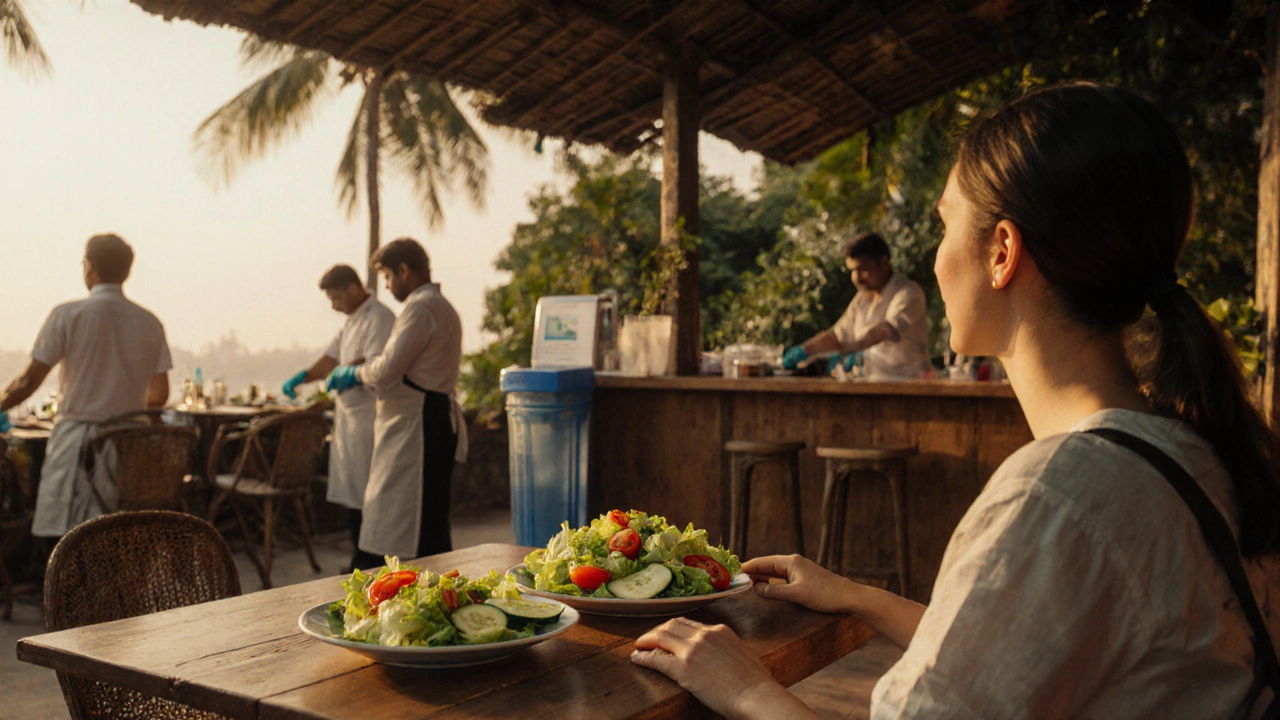Salad Hygiene India: Safe Eating Practices for Travelers
When you're traveling in India, salad hygiene India, the practice of ensuring fresh vegetables and fruits are cleaned and handled safely before eating. Also known as food safety for travelers, it's not just about avoiding stomach bugs—it's about knowing who to trust and what to ask for. Many visitors assume that because salads look fresh, they're safe. But in places where water quality varies, even a simple cucumber or tomato can carry bacteria if washed in untreated water or handled with unclean hands.
That’s why food safety India, the set of practices followed by vendors, hotels, and restaurants to prevent illness from contaminated food. Also known as traveler’s digestive health, it’s something you can’t ignore, even if you’re eating at a five-star hotel. Tourists often get sick not from spicy food, but from salads, chutneys, or fruit juices that look harmless. In cities like Delhi, Mumbai, or Bangalore, street vendors might wash produce in tap water—water that’s fine for washing dishes but not for raw vegetables. Meanwhile, upscale restaurants often use filtered or boiled water, but they don’t always tell you. The key is to observe: Are they peeling fruit in front of you? Do they use gloves? Is the salad sitting out in the sun for hours?
street food safety, how vendors prepare and serve food in open-air markets and roadside stalls. Also known as on-the-go eating hygiene, it’s where India’s real flavor lives—but also where risks are highest. A fresh papadum or a bowl of chaat might be perfectly safe if the vendor uses bottled water, changes gloves often, and keeps ingredients covered. But if you see flies on the counter or a worker handling money then food without washing hands, walk away. The same rule applies to salads: if it’s pre-cut and sitting out, skip it. Ask for it to be made fresh, and if they hesitate, that’s your answer.
Many travelers think they need to avoid salads entirely in India. That’s not true. You just need to be smart. Stick to places where locals line up. Look for vendors who wash produce in front of you. Choose places with high turnover—fresh food doesn’t sit around. And if you’re staying in a hotel, ask the staff where they source their vegetables. Most will tell you honestly if they use filtered water or buy from trusted farms.
It’s not about fear. It’s about awareness. India has some of the most vibrant, flavorful food in the world—and you shouldn’t miss out because of a myth. But you also shouldn’t roll the dice with your health. The posts below give you real stories, practical checklists, and firsthand tips from travelers who’ve learned the hard way. You’ll find out which cities are safest for salads, what signs to look for at markets, and how to recover if you do get sick. No fluff. No guesswork. Just what works.
- Nov, 21 2025
- 0 Comments
Is it safe to eat salad in India? Learn how to enjoy fresh vegetables without getting sick-smart tips for travelers in South India on where to eat, what to avoid, and how to stay healthy.
More